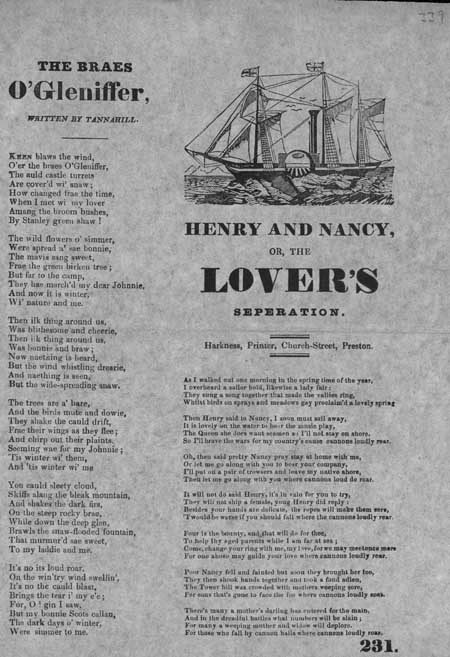Commentary
'The Braes o' Gleniffer' begins: 'KEEN blaws the wind, / O'er the braes O' Gleniffer'. 'Henry and Nancy' begins: 'As I walked out one morning in the spring time of the year, / I overheard a sailor bold, likewise a lady fair'. The sheet was published by Harkness of Church Street in Preston. The author of 'The Braes o' Gleniffer' is given as Tannahill. 'The Braes o' Gleniffer' is the best known song written by the weaver and poet Robert Tannahill (1774-1810). It was inspired by Gleniffer Braes in Renfrewshire, overlooking Tannahill's home town of Paisley. 'Henry and Nancy' is a song about a young man exchanging farewells with his sweetheart before he joins the navy. Songs that involved two lovers forced apart by financial circumstances or by military duty were among the most common types of ballad featured on broadsides. Early ballads were dramatic or humorous narrative songs derived from folk culture that predated printing. Originally perpetuated by word of mouth, many ballads survive because they were recorded on broadsides. Musical notation was rarely printed, as tunes were usually established favourites. The term 'ballad' eventually applied more broadly to any kind of topical or popular verse.
View Transcription | Download PDF Facsimile
|


